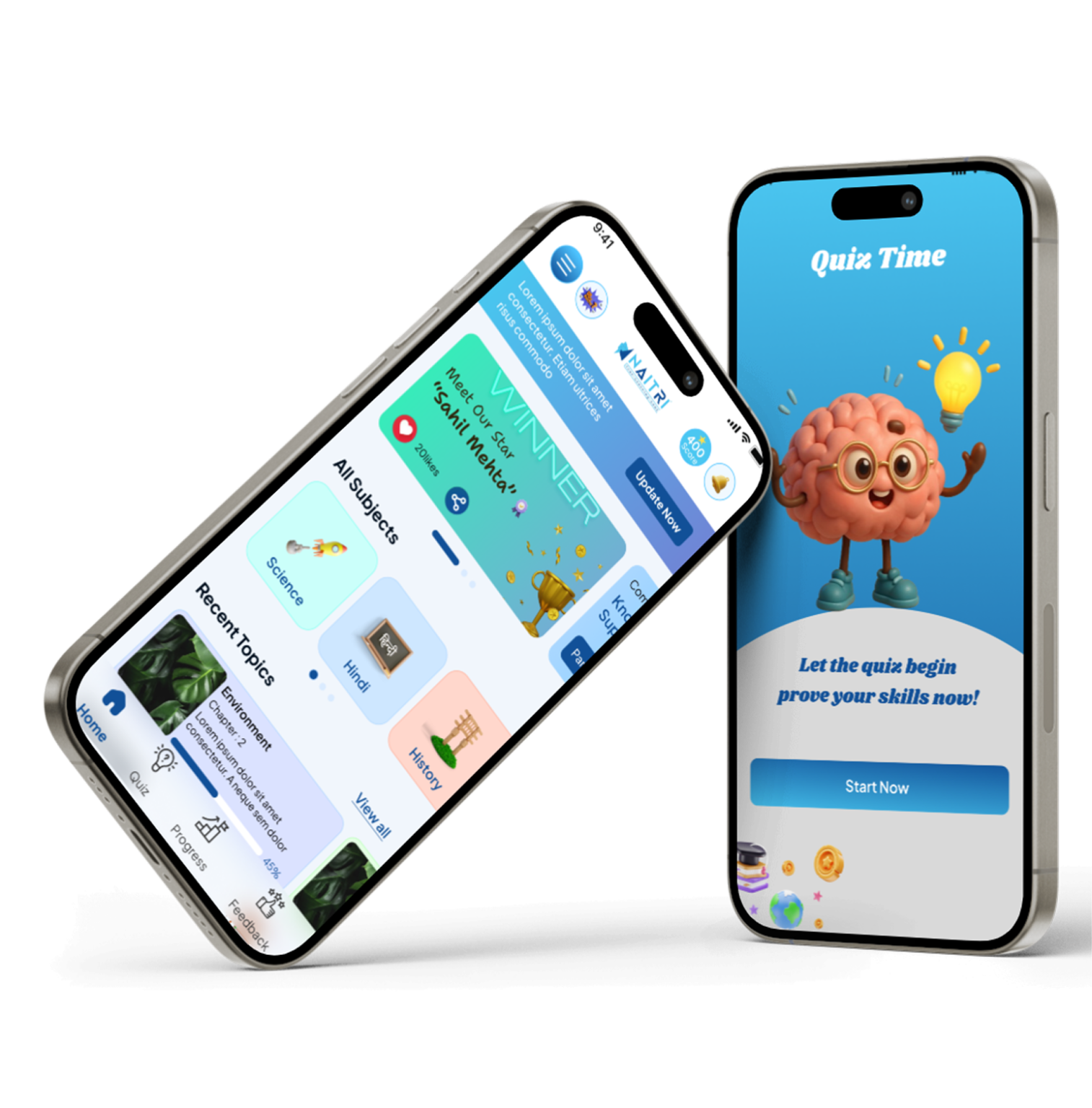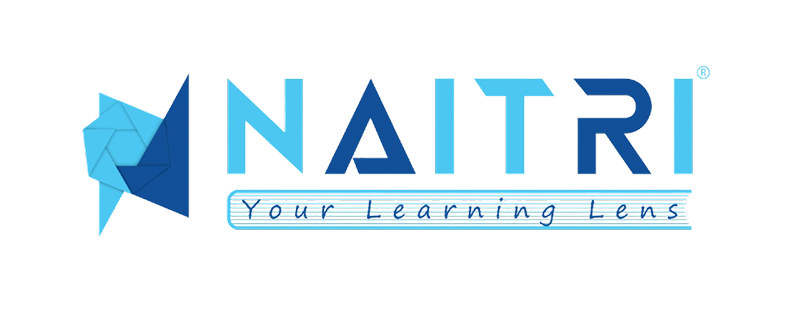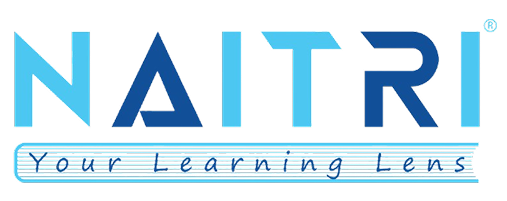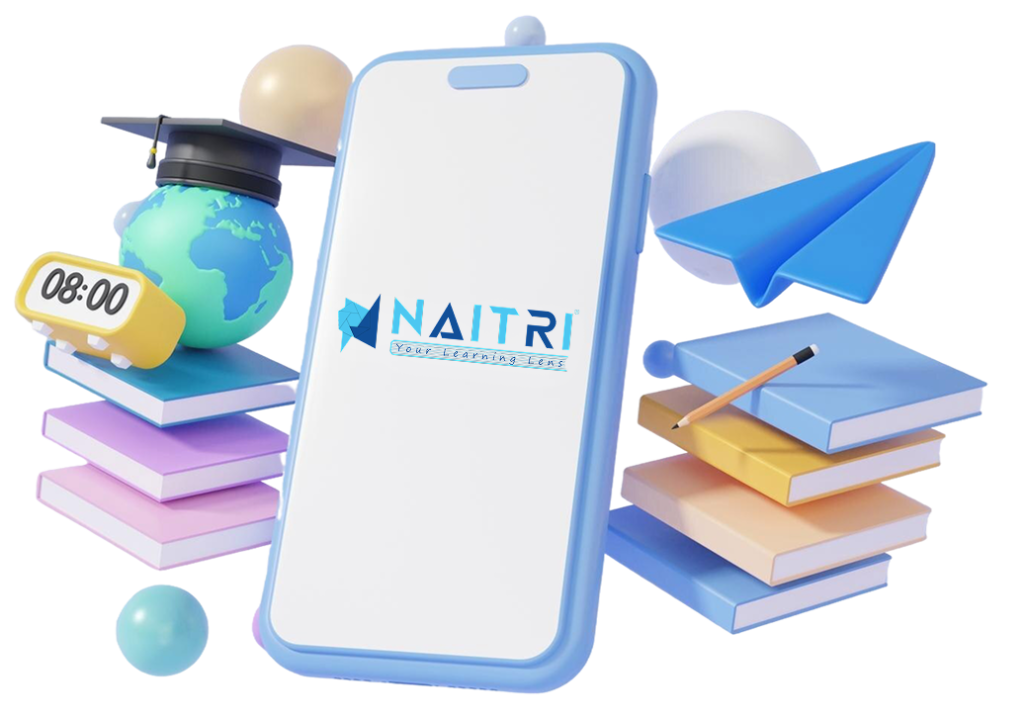NCERT Solutions for Class 9 Civics Chapter 5 – Democratic Rights
NCERT Solutions for Class 9 Civics Chapter 5 – Democratic Rights are essential for understanding fundamental rights and their importance in a democracy, as outlined in the CBSE curriculum. These well-structured answers help students grasp topics like the Right to Equality, Freedom, Constitutional Remedies, and the role of rights in protecting citizens. Designed as per the latest syllabus, these solutions strengthen conceptual clarity and improve exam preparation. Ideal for revision and practice, they build legal awareness and democratic responsibility, making them a valuable study tool for scoring well in Class 9 Social Science exams.
NCERT Solutions For Class 9 Civics –Democratic Rights – Exercise Images
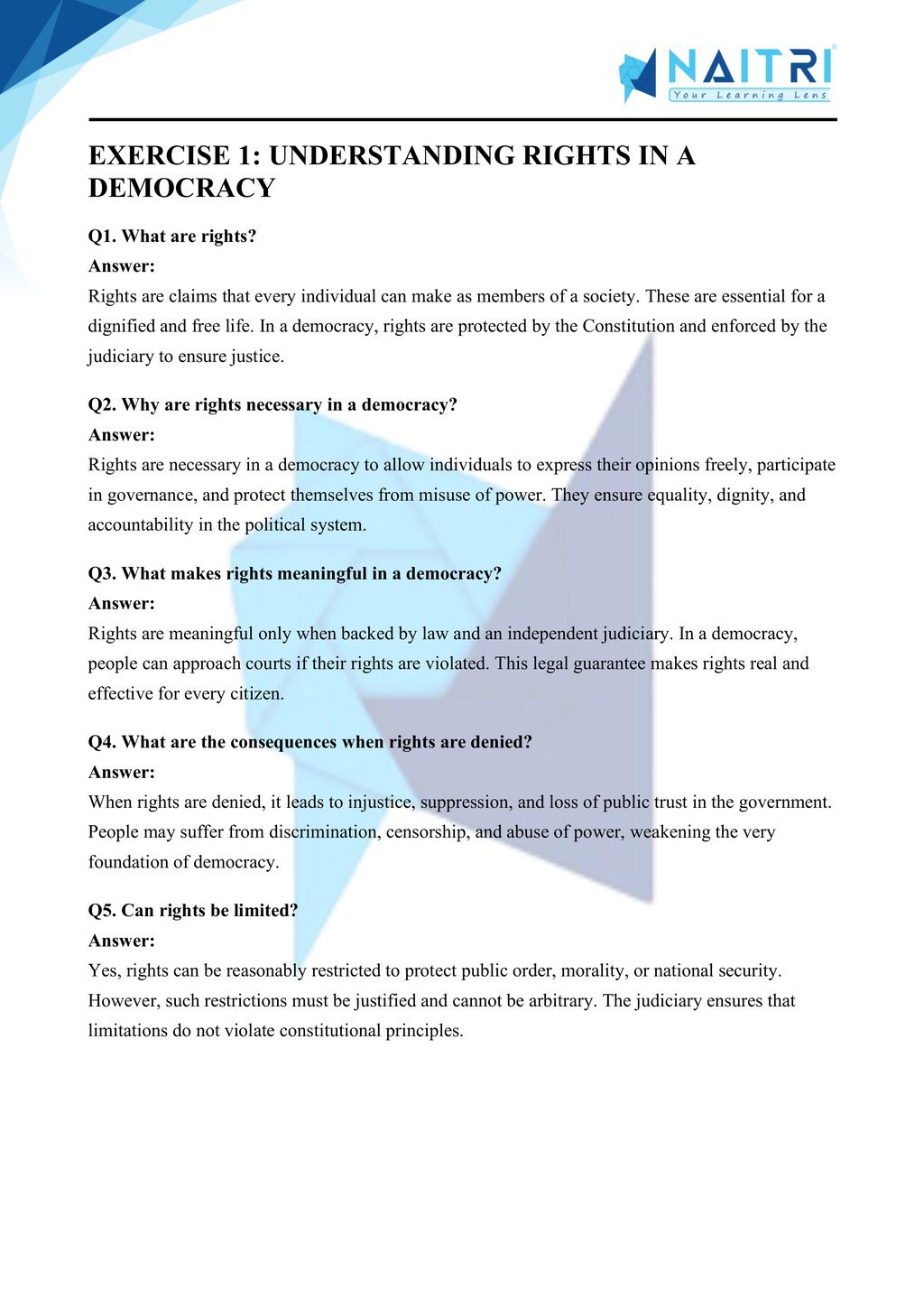
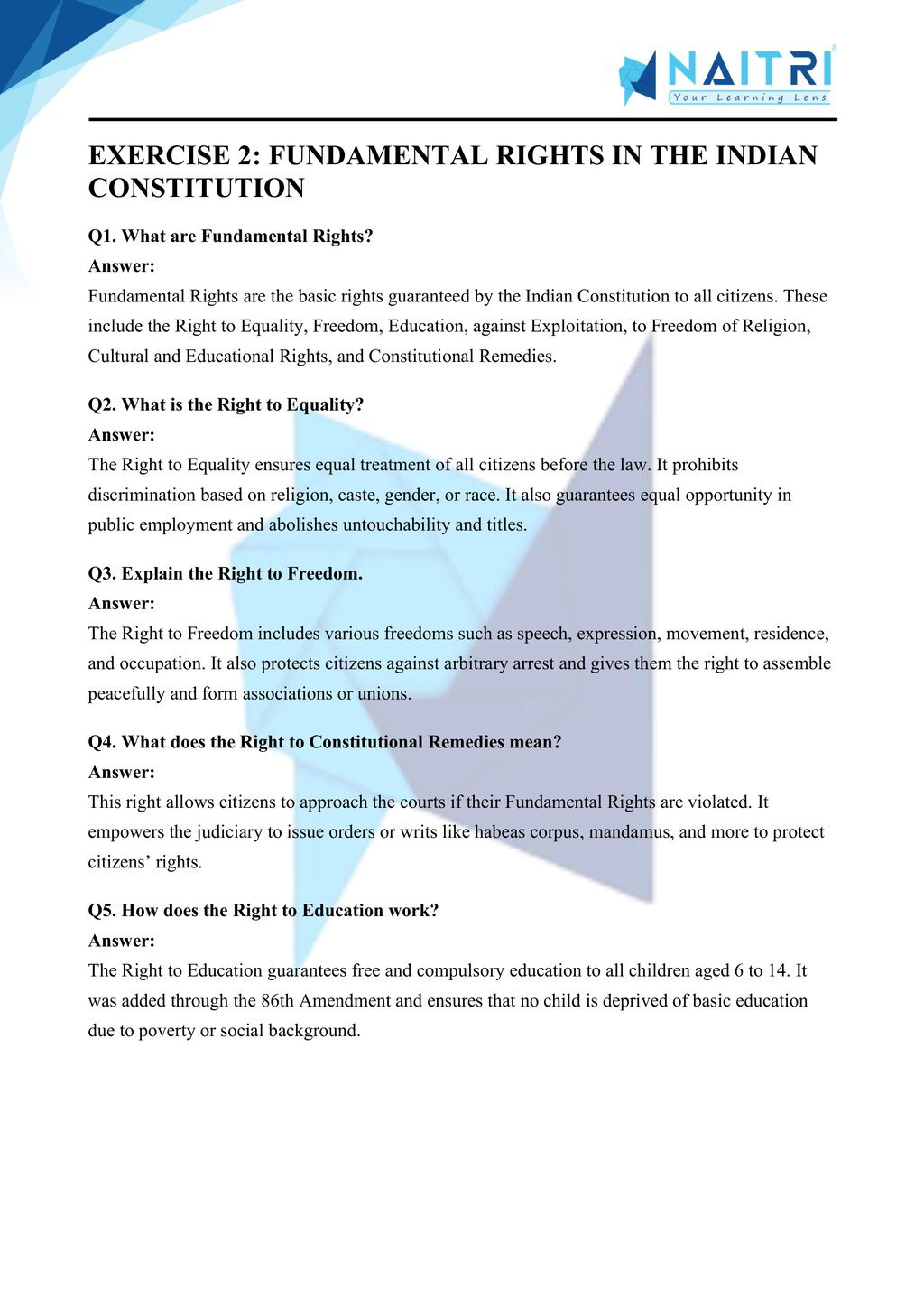
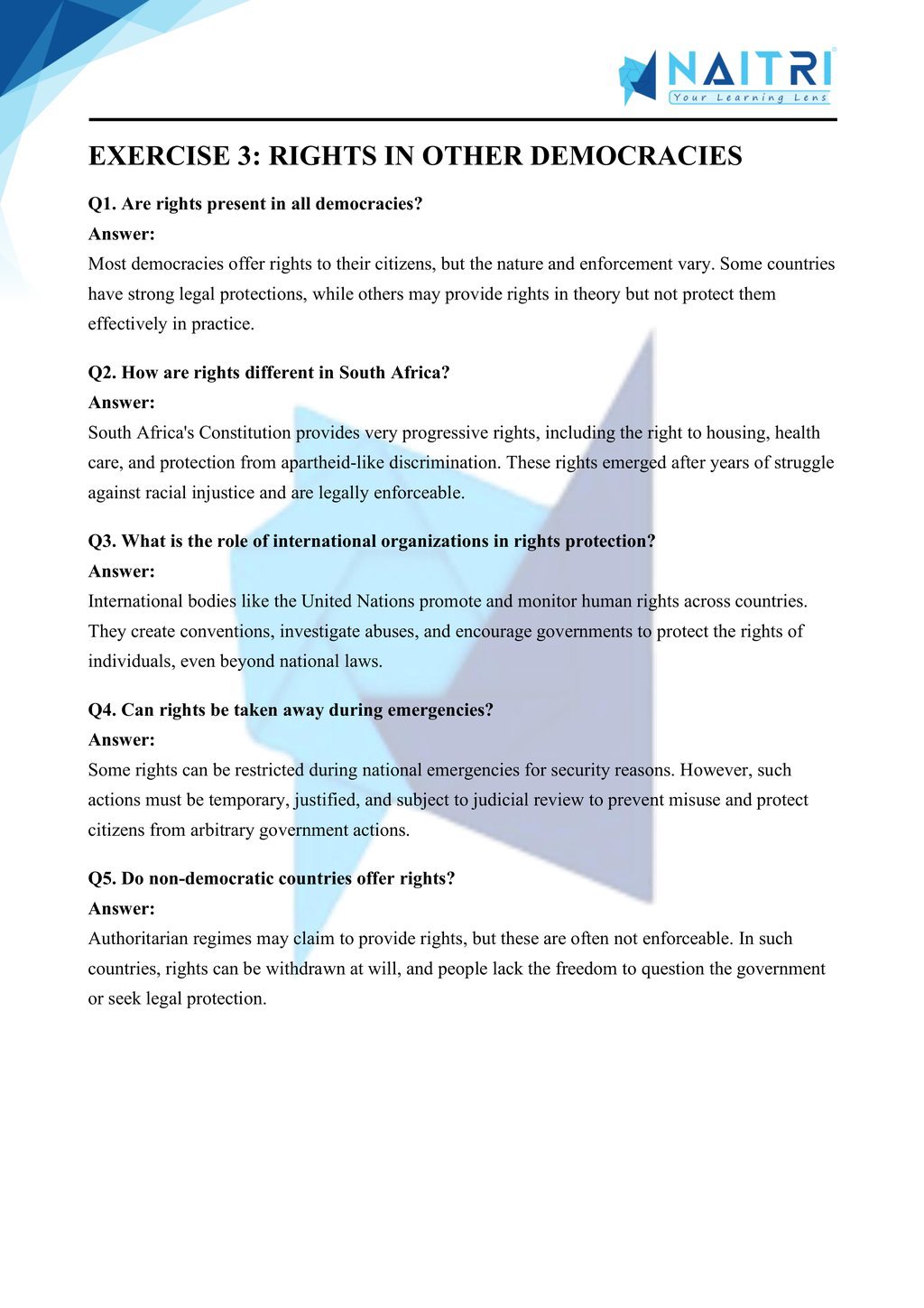
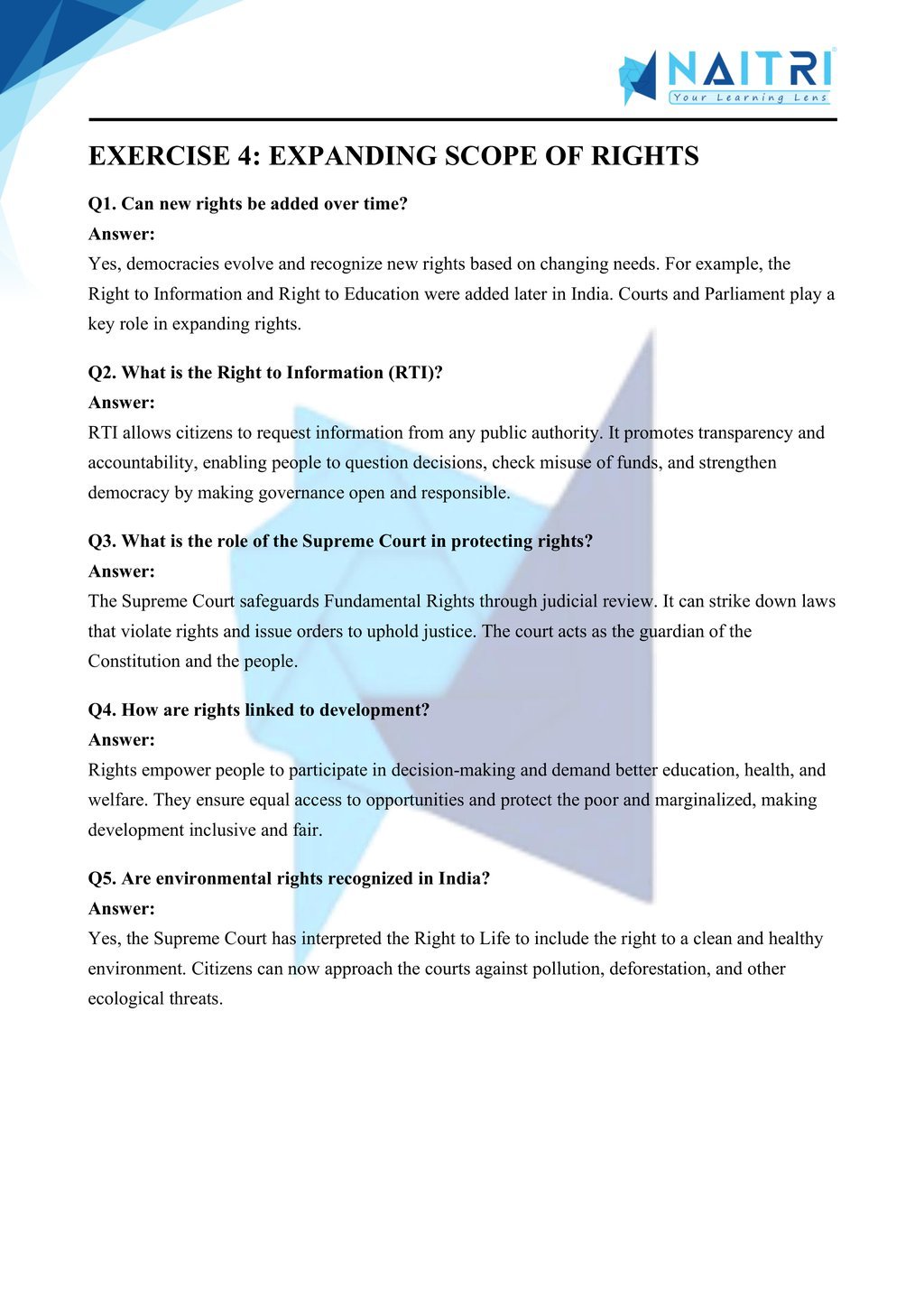
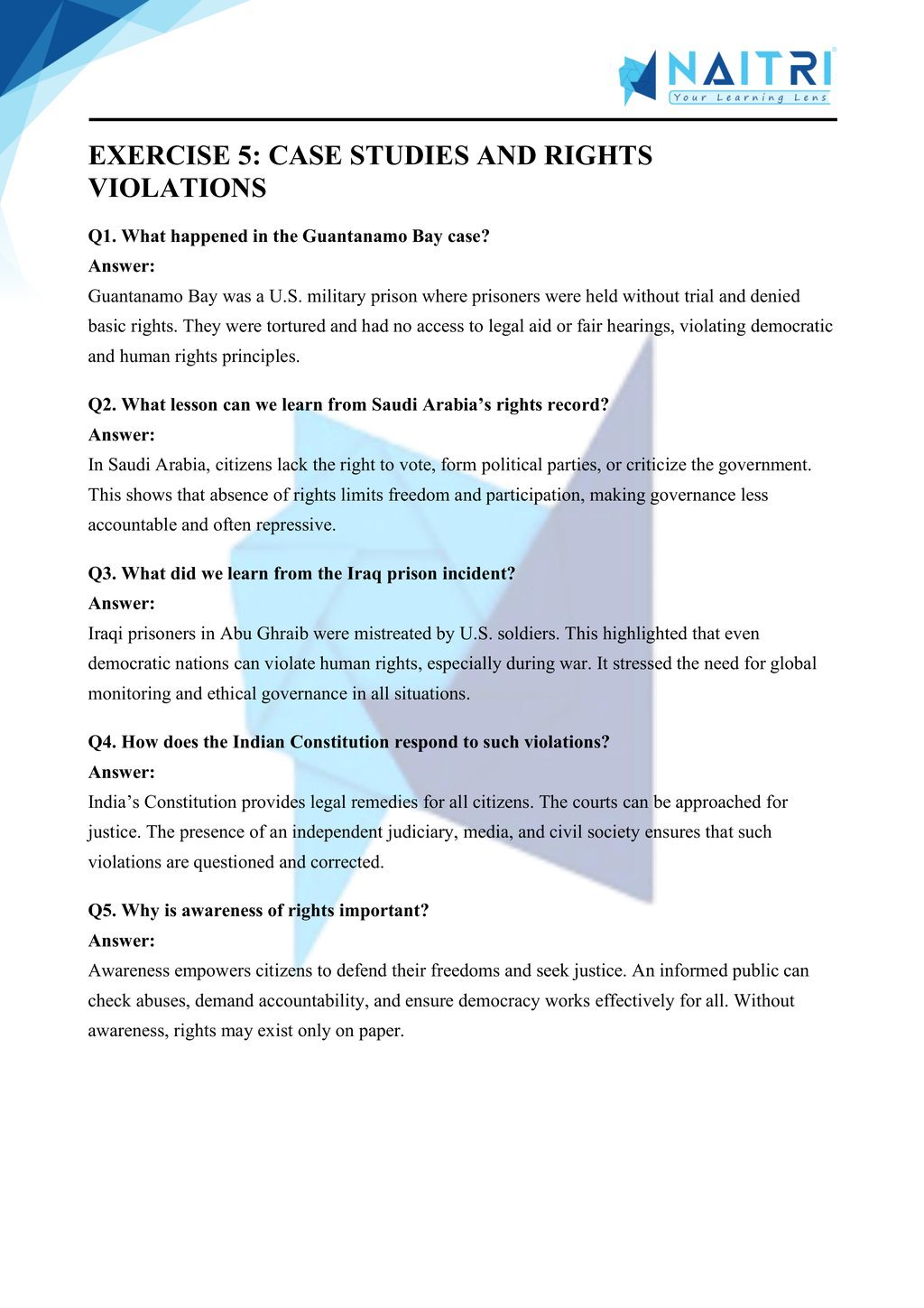
Experience Civics Like Never Before – With AR!
Understanding Democratic Rights is now more exciting and immersive! With the NAITRI App, you can explore complex civics concepts through Augmented Reality (AR). Explore fundamental rights activate, legal protections unfold, and real-life case studies animate — right in front of you. Our AR-powered lessons make learning interactive, 3D, and fun, helping you retain concepts better and enjoy every topic.
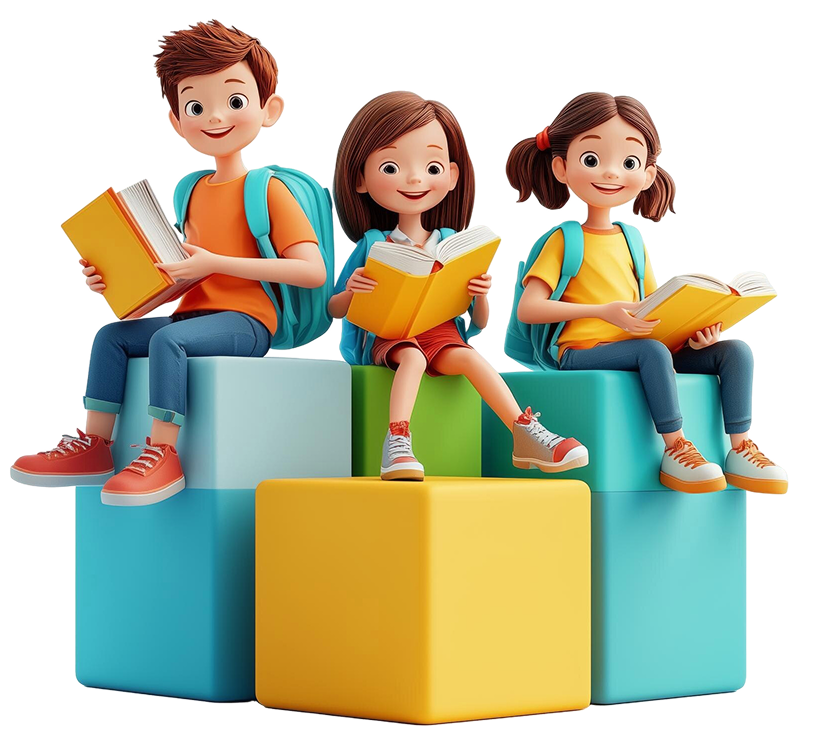
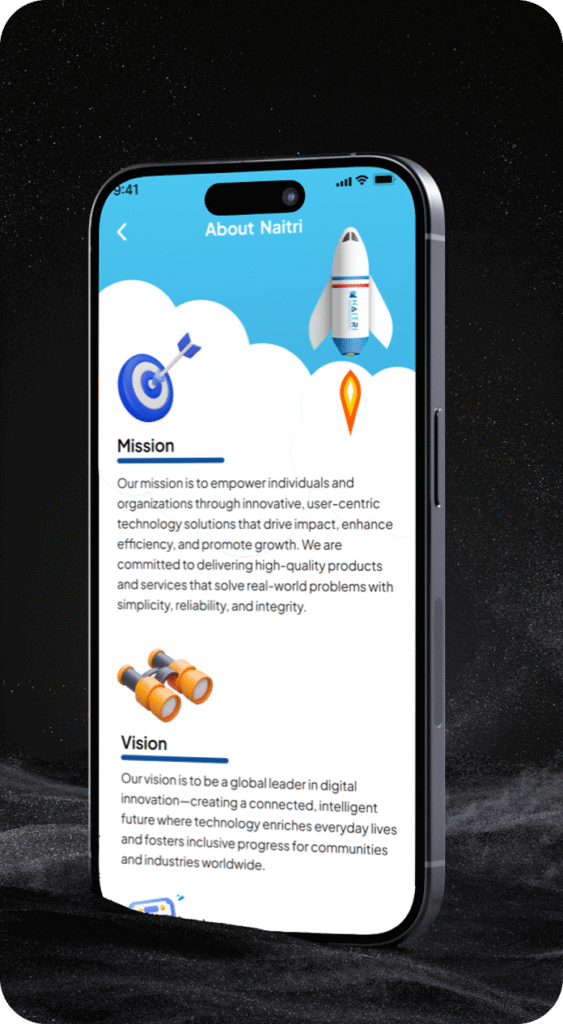

Visualize . Interact . Understand . The future of learning is here
Democratic Rights – Important Questions with Answers
What are rights?
Answer: Rights are legal entitlements that every citizen enjoys. They allow individuals to live with freedom, dignity, and protection under the law.Why do we need rights in a democracy?
Answer: Rights are essential in a democracy because they protect citizens from abuse of power, ensure participation, and guarantee freedom and equality.What are Fundamental Rights?
Answer: Fundamental Rights are guaranteed by the Constitution. They ensure individual liberty, equality, and justice, and are enforceable by the courts.Name the six Fundamental Rights guaranteed by the Indian Constitution.
Answer: The six Fundamental Rights are:Right to Equality
Right to Freedom
Right against Exploitation
Right to Freedom of Religion
Cultural and Educational Rights
Right to Constitutional Remedies
What is the Right to Equality?
Answer: This right ensures that every citizen is equal before the law, with no discrimination based on religion, caste, gender, or place of birth.What does the Right to Freedom include?
Answer: It includes freedom of speech, expression, movement, assembly, forming associations, and practicing any profession, as long as it does not harm others.What is the Right against Exploitation?
Answer: It protects individuals from forced labour, child labour, and human trafficking, ensuring everyone can live with dignity and safety.What is the Right to Freedom of Religion?
Answer: This right allows individuals to practice, profess, and propagate any religion. India is a secular state, treating all religions equally.What are Cultural and Educational Rights?
Answer: These rights protect the culture and language of minority communities and allow them to establish and run educational institutions of their choice.What is the Right to Constitutional Remedies?
Answer: It empowers citizens to approach the courts if their Fundamental Rights are violated. This right is the guardian of all other rights.Who called the Right to Constitutional Remedies the ‘heart and soul’ of the Constitution?
Answer: Dr. B.R. Ambedkar called it so, because it allows citizens to seek justice when their rights are denied.What is a writ petition?
Answer: A writ petition is a legal document filed in the Supreme Court or High Court to protect Fundamental Rights from violation by any authority.How are rights protected in India?
Answer: Rights are protected by the judiciary. Citizens can go to court if their rights are denied or violated by anyone.Why are some rights placed under the Fundamental Rights?
Answer: They are essential for living a life of dignity, ensure justice, and protect the freedom of individuals in a democratic society.What is preventive detention?
Answer: Preventive detention is when a person is held by the government without trial for a short period if considered a threat to law and order.What is the role of the National Human Rights Commission (NHRC)?
Answer: NHRC is an independent body that investigates human rights violations, ensures justice, and advises the government on rights protection.Give an example of a violation of human rights.
Answer: Child labour, caste-based violence, or police brutality are examples of human rights violations, where individuals are denied dignity and justice.What is Amnesty International?
Answer: It is a global organization that works to protect human rights worldwide and highlights abuse and injustice in different countries.What are economic and social rights?
Answer: These include the right to education, health care, work, and housing. Though not Fundamental Rights, they are vital for a good life.What is the difference between legal rights and Fundamental Rights?
Answer: Legal rights are granted by ordinary laws, while Fundamental Rights are guaranteed by the Constitutionand have a stronger legal backing.Can the Fundamental Rights be suspended?
Answer: Yes, during a national emergency, some Fundamental Rights like freedom of speech can be temporarily suspended, except for the Right to Life.What is the Right to Education?
Answer: It provides free and compulsory education to children aged 6–14 years, ensuring equal access to basic schooling for every child in India.How does democracy ensure the protection of rights?
Answer: Democracy promotes participation, follows rule of law, and has independent courts that citizens can approach if rights are violated.Why is freedom of speech essential?
Answer: It helps citizens express views, question the government, and participate in debates. It is essential for democracy and meaningful dialogue.Why are rights important for citizens?
Answer: Rights protect individuals from abuse, give freedom, ensure equal opportunities, and help them live with dignity, fairness, and justice in a democratic society.
Democratic Rights emphasizes the rights guaranteed to all citizens in a democracy, especially under the Indian Constitution. It explains fundamental rights such as the right to equality, freedom, and constitutional remedies. The chapter also discusses how these rights can be violated and protected, with examples from India and around the world. It empowers students with a strong understanding of civil liberties and justice.
Download Naitri App
Easy, Visual Learning — Right on Your Phone
Learn with Augmented Reality! The Naitri app makes CBSE and MP Board concepts interactive and fun — even in low-resource settings. Watch lessons, complete homework, take tests, and track progress — all in one place. Anytime. Anywhere.
Available on

